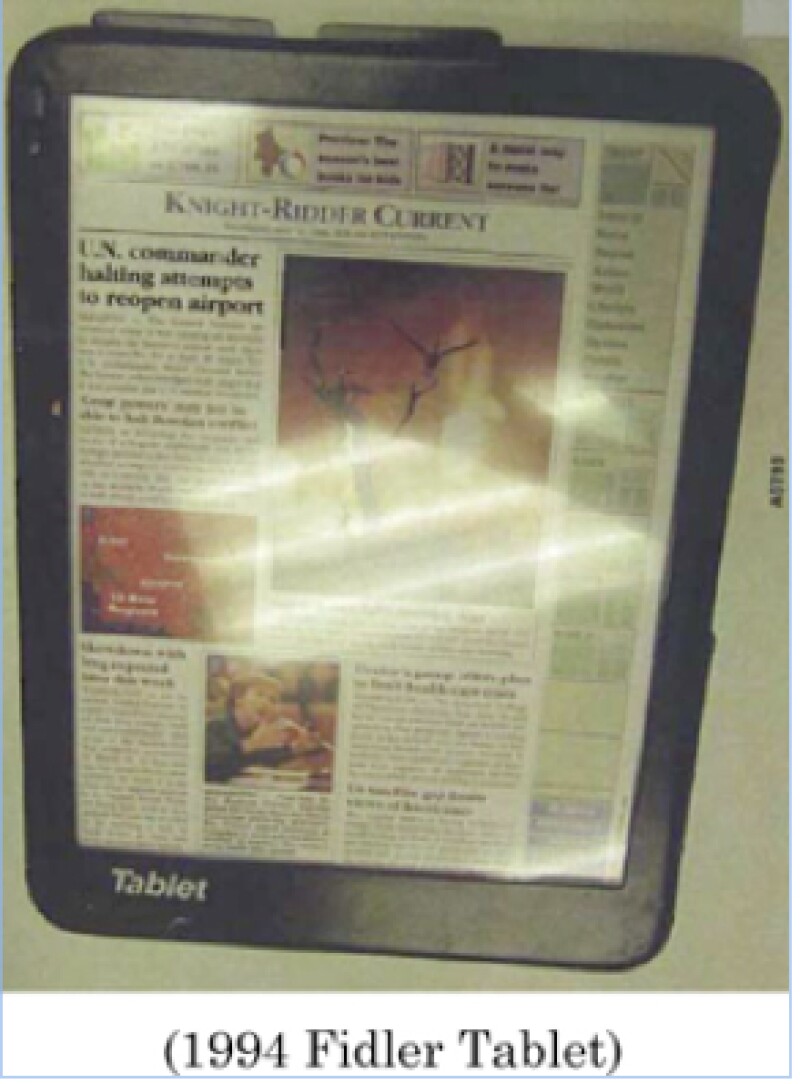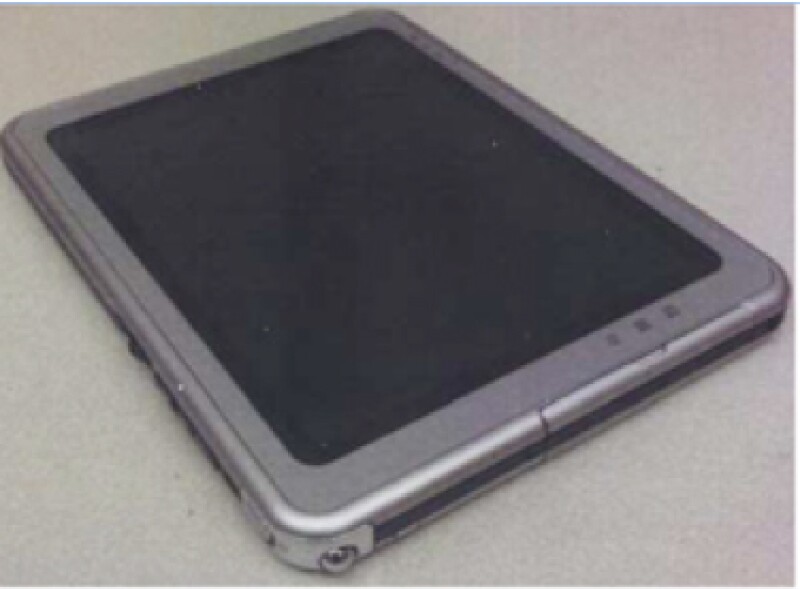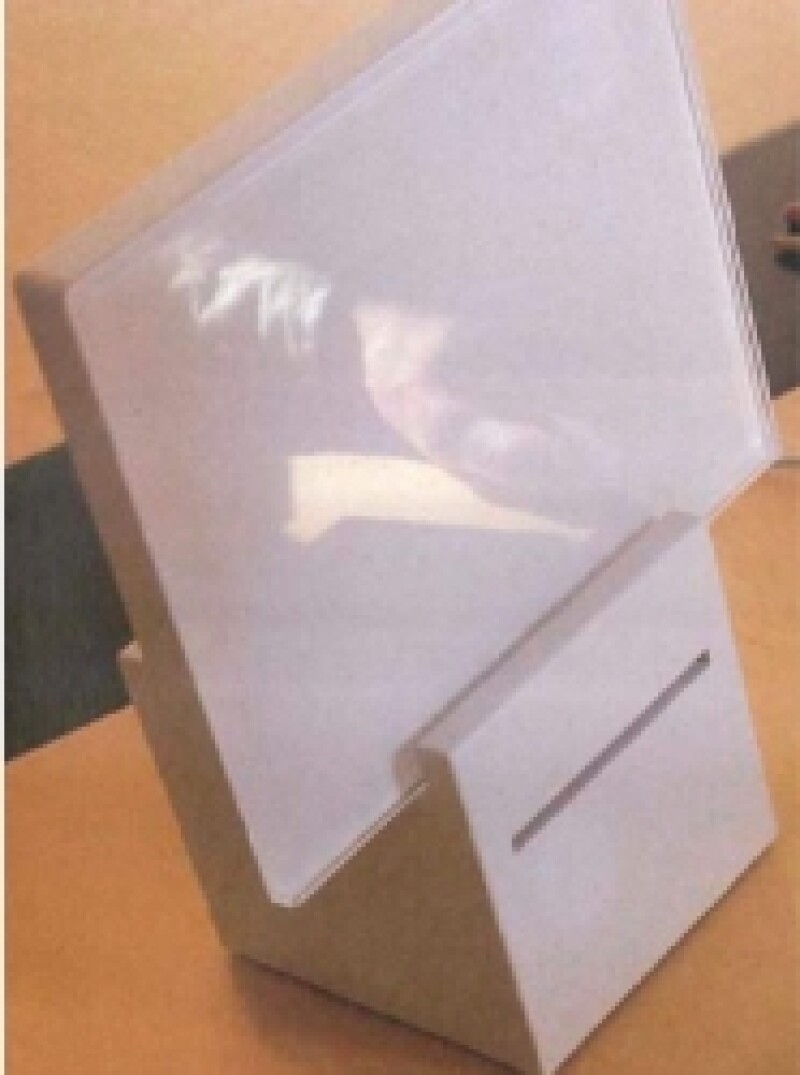
Egyptian Goddess, Inc v Swisa, Inc [Fed Cir 2008]). To date, however, the public record does not appear to contain any such prior art gems.
Further, keep in mind that the Federal Circuit already shut down Samsung’s entire opening parade of prior art tablets, including the 1994 Fiddler Tablet (left) and the Hewlett-Packard Compaq Tablet TC1000 (below, right), which were the centerpiece of Samsung’s defence during the preliminary injunction stage. Specifically, the Federal Circuit held that all the submitted prior art tablets were so different in appearance from the D‘889 patent that to rely on any of them for either the defence of anticipation or obviousness constituted legal error. In other words, these references were not even in the ballpark. Thus, unless newly relied upon prior art is much closer in appearance to the D‘889 than those references already rejected, the Federal Circuit sits poised to reverse any prior art invalidity findings that Samsung might secure at trial.

Making matters worse, the chances that Samsung will pull a prior art rabbit from its hat are slimmer now that large swaths of the 595 prior art references that it intended on relying upon for its non-infringement and invalidity cases recently have been excluded from the case in a pre-trial evidentiary ruling by Magistrate Judge Grewal. According to Grewal and Koh, the prior art references (and related theories of invalidity and non-infringement) have been excluded because Samsung failed to timely disclose them prior to the close of fact discovery. Indeed, the two prior art references that Samsung relied upon in its Motion for Summary Judgment of Invalidity for the D’889, namely, US D500,037 and Apple’s Brain Box (left), which were presumably Samsung’s best prior art references, were both excluded.

In denying Samsung’s Motion for Summary Judgment of Invalidity for the D’889, patent, Koh stated that she need not consider these two references on summary judgment given that they “will not be admissible at trial”. Seeing that the Samsung Galaxy 10.1 Tab is closer to the D’889 than either of these two references, (two references which presumably were Samsung’s closest two prior art references out of the 595 references proffered), at this late stage in the case, it appears unlikely that Samsung will unearth, and successfully have admitted into evidence, any game-changing prior art references.










